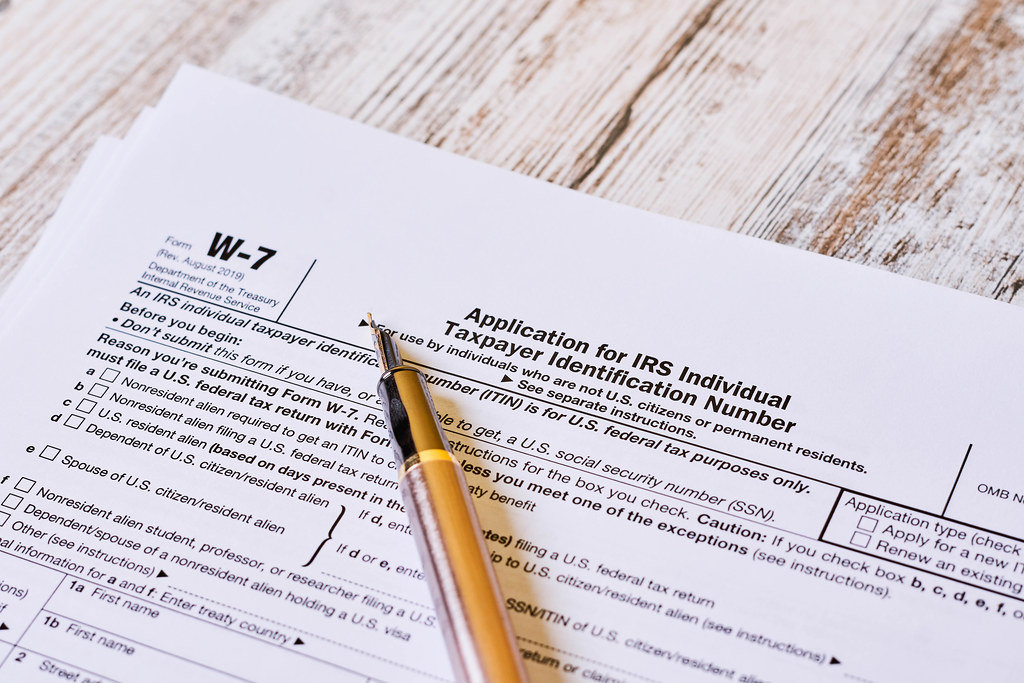So, your 60s are creeping up, and suddenly everyone has an opinion on when you should claim Social Security. “Wait until 70!” they say. “You’ll get more money!” Sure, but what if you want to retire before your knees do? What if you’re ready to swap spreadsheets for road trips, or just want a little financial breathing room now, not seven years from now?
Here’s the thing: filing at 62 isn’t just for people who “can’t wait.” It can be a smart, strategic move—yes, even if it means a slightly smaller check. Whether you’re dealing with health curveballs, tired of work stress, or just itching to finally enjoy your time, taking Social Security early can unlock a whole new chapter.
1. Instant Monthly Income Boost

Need cash now? If you file at 62, you lock in your first Social Security check just four months after you apply—perfect for covering that mortgage, unexpected medical bill, or spontaneous Bali trip you’ve been stalking on Instagram. Sure, your benefit is reduced by roughly 30% compared to waiting until full retirement age, but when your budget’s tight, a steady deposit in your bank account is downright magical. Plus, per AARP, you still get cost-of-living adjustments every year, so your payout keeps pace with inflation without any extra paperwork on your end.
And if you surprise yourself by rejoining the workforce, you can suspend benefits and watch them grow with delayed-retirement credits (up to age 70). It’s basically a choose-your-own-adventure: take the cash now or let it accrue interest for later—your call!
2. Take Advantage of Spousal and Survivor Rules

If you’re married (or were), filing at 62 can unlock spousal or survivor benefits earlier. A lower-earning spouse can claim up to 50% of the higher earner’s benefit at retirement age, and survivors can start collecting as early as age 60—so filing early may boost your household’s total payout.
That way, if your partner passes away, you’re already in the system collecting a check—no awkward waiting game. It’s a smart strategy to ensure both of you get the maximum bang for your buck, per CNBC. Plus, filing early can simplify coordination if you’re divorced and eligible for ex-spousal benefits—no need to juggle messy timelines. You’ll also sidestep surprise paperwork down the road, since you’ve already locked in your own benefit before any family-status changes. And let’s face it: having clarity on what each of you will receive is way less stressful than last-minute benefit negotiations.
3. Hedge Against Health Uncertainties

Let’s be real—none of us have a crystal ball for our lifespans. By claiming at 62, you guarantee you won’t pass away before ever seeing a dime of benefits. According to research quoted in Bloomberg, waiting until full retirement age only pays off if you live into your early 80s—so if you’d rather bank smaller, certain checks than gamble on a bigger payday decades down the road, early filing can be a smart move.
What’s more, should serious health issues arise later, you’ve already secured that baseline income—meaning you won’t have to tap your savings or dig into emergency funds to cover long-term care or surprise medical expenses.
4. Bridge Income Gaps Between Jobs

Switching careers? Facing a layoff? Launching that side hustle you’ve been dreaming about? Filing at 62 plugs the hole in your paycheck so you can chase new opportunities without fretting over lost W-2 income. As per Kiplinger, even if you decide to work part-time or pick up consulting gigs, your benefits continue—often with minimal earnings-limit penalties once you hit your full-retirement age.
Think of it like a safety net: while you pivot, your Social Security check ensures you don’t have to raid savings or rack up credit-card debt. And honestly, the peace of mind when the job market feels like a roller-coaster? Priceless.
5. Tax Diversification

When you claim Social Security, only up to 85% of your benefit is taxable—and that percent depends on your total “combined income.” If you’ve stacked up a hefty 401(k) or traditional IRA, early benefits can level out your tax bracket in retirement by providing lightly taxable income, rather than forcing massive, highly taxable IRA withdrawals all at once.
Put simply, you’re mixing your income sources—some taxed more, some taxed less—which can keep more money in your pocket long term. It’s like building a balanced portfolio for your tax bill, according to Investopedia.
6. Capture Benefits Before Potential Program Changes

Let’s face it: Social Security’s future funding is always a hot topic in D.C., and reforms could include raising the full-retirement age later or tweaking cost-of-living adjustments. By claiming at 62 now, you lock in today’s rules and rates—no “Sorry, you’d get less under the new rules” surprises.
While no one expects a massive clawback for current retirees, grabbing benefits sooner sidesteps any legislative curveballs. Consider it your own little protest vote for financial independence! Think of it as filing your taxes before the IRS changes the game—get your benefits while the getting’s good. It also shields you from unpredictable tweaks to inflation adjustments that might not keep pace with your rising grocery bills. And in the worst-case scenario, you’ve already banked your baseline income before any benefit caps or cuts hit the headlines.
7. Enjoy “Freedom Retirement” ASAP

Who says retirement has to start at 67? Filing at 62 means you can swap your morning commute for master ceramics classes, beach volleyball, or just binge-watching your favorite shows—without worrying about whether your 401(k) has enough juice.
Early retirement can boost your happiness quotient if you value experiences over a slightly larger bank balance. Because let’s be honest: memories don’t depreciate like stocks! Plus, you’ll have bragging rights at brunch—“Yeah, I retired at 62.” And hey, more time for naps and guilt-free afternoon margaritas doesn’t hurt either. You’ll also have the mental bandwidth to volunteer, mentor, or even launch that passion project you’ve been dreaming of. And trust us, swapping rush-hour gridlock for sunrise yoga at the beach is the kind of glow-up you deserve.
8. Lock In Benefits If You’re a Lower Earner

If your career was more passion project than profit juggernaut—teachers, artists, gig workers—you might not gain much by delaying for maximum monthly amounts. Your “full” benefit isn’t enormous to begin with, so taking it at 62 can still give you a solid base income without sacrificing too much.
Plus, your smaller benefit grows with COLA just like everyone else’s—so you’re not missing out on the inflation bump by waiting. It’s essentially getting a VIP pass to guaranteed income, no matter how modest. And those modest checks can stack up into a surprisingly comfy cushion over the years. You’ll also avoid potential IRMAA (income-related Medicare adjustment) spikes since your Social Security won’t push you into higher thresholds as much. Early filing can reduce your tax headaches, too, since you spread out income more evenly across your retirement timeline. And honestly, consistent cash flow—even on the modest side—means fewer sleepless nights worrying about your next budget cycle.
9. Aid for Caregivers

Caregiving for elderly parents or grandchildren can derail a full-time career, negatively impacting your lifetime earnings record. Filing at 62 ensures you start collecting based on the work you’ve already done, rather than waiting for an income resume that might never fully bounce back.
It’s a way to monetize years of hard work when you need it most—nurturing family without financial regret. You’ll thank yourself when you’re not scrambling to make ends meet after pausing work for a loved one. Plus, you can focus on therapy sessions for your stress—oops, we mean quality time! Having that fallback income also means you won’t need to deplete your personal savings or emergency fund if caregiving duties stretch on. And with less financial pressure, you can be a better caregiver—because burnout is real, and money worries only add fuel to the fire.
10. Weather Market Volatility

Retirement portfolios tied to stocks can get a volatility workout. Early Social Security checks mean you can tap guaranteed government income, letting you let your investments recover instead of selling during a downturn.
That “set-it-and-forget-it” income stream helps you stick to a long-term investment strategy without panic-selling low. Think of Social Security as your financial shock absorber when markets hit a pothole. And hey, smooth rides are way more fun than bumper-to-bumper chaos. With a steady monthly deposit, you’re less tempted to time the market or chase hot tips. Plus, that cushion lets you rebalance your portfolio on your timeline, not in a panic after a 10% plunge.
11. Capitalize on the Break-Even Age Shift

The traditional “break-even” age—when cumulative benefits from waiting surpass early filing—has crept up into the late 70s or early 80s. If you expect a shorter retirement horizon (thanks to family history or lifestyle), you might never hit break-even, making 62 the sweet spot.
Crunch the numbers for yourself, but for many folks, early is still early-to-the-bank. It’s like choosing the small cash prize now instead of hoping for a mega jackpot at 80. And let’s face it, you’d rather spend that dough on adventures than keep it locked away. If your ancestors haven’t been hitting 90s, those extra dollars in your 60s make a lot more sense. Plus, investing those early benefits could outpace any “lost” income from waiting—talk about beating the system!
12. Psychological Boost of Financial Confidence

Last but not least: there’s a certain peace of mind in knowing you’ve got a steady paycheck. Anxiety about whether your savings will last can be crippling; Social Security at 62 can calm the nerves and free you to enjoy retirement on your terms—cheeky dance breaks included.
Think of every monthly deposit as a mini high-five from your future self, cheering you on for making a smart move today. That confidence ripple effects into better sleep, bolder bucket-list choices, and fewer “what-ifs.” And who doesn’t want to feel like a boss at any age? Plus, you’ll walk into financial planning meetings with swagger—no deer-in-the-headlights here.
This article is for informational purposes only and should not be construed as financial advice. Consult a financial professional before making investment or other financial decisions. The author and publisher make no warranties of any kind.








